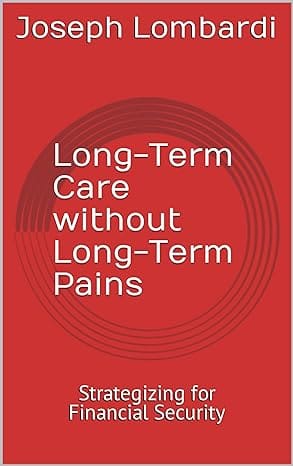Understanding Connecticut’s Life Insurance Options
Life insurance options in Connecticut: Make an informed choice between term life insurance and whole life insurance policies. With term, you pay for a set period, while whole life accumulates cash value over time as it pays out to beneficiaries upon death. Both options offer benefits depending on your financial situation, health and age.
When deciding which policy to purchase, consider your current financial obligations such as debts or mortgage payments. Term policies can be an excellent short-term option to cover these while keeping your premiums lower. However, if you’re looking for long-term coverage and wealth building opportunities, whole life might be the better option.
It’s vital to compare quotes from multiple companies before committing to a policy. Each company may differ in their underwriting process and pricing structure. Research the insurer’s financial stability by checking ratings from organizations like A.M. Best or Moody’s.
Pro Tip: Consider purchasing both term and whole life policies to provide comprehensive protection that changes as your needs evolve throughout life.
Term Life Insurance in CT
Term Life Insurance: Secure Your Loved Ones in CT
Term life insurance is a type of insurance that provides coverage for a certain period of time, commonly known as the term. This insurance policy provides a death benefit to the designated beneficiaries if the policyholder passes away during the term. In CT, term life insurance is an excellent option for those who want to ensure that their loved ones are financially secure in the event of their untimely death.
Term life insurance in CT is a cost-effective and straightforward solution. Typically, the premiums are much lower than those for whole life insurance because the coverage is only for a specific term. Additionally, the policyholder has the flexibility to choose the length of the term, usually ranging from 5 to 30 years, and the amount of coverage needed.
Most importantly, term life insurance provides peace of mind knowing that loved ones will be protected financially. In CT, where the cost of living is high, it is essential to ensure that your family is taken care of in the event of an unexpected occurrence.
Here’s a real-life example of how term life insurance can be a lifesaver. A 35-year-old married individual who was the sole breadwinner passed away unexpectedly. His wife and children were emotionally and financially bereft until his term life insurance policy paid out, ensuring they could maintain their lifestyle and support themselves moving forward.
Choosing the right insurance policy can be overwhelming; however, term life insurance may be an excellent option for those in CT who want to ensure their loved one’s financial stability without breaking the bank. Term life insurance: the perfect plan for those who, like me, like to live dangerously but only for a limited time.
Definition of Term Life Insurance
Term life insurance is a type of life insurance policy that provides coverage for a specified period. The policyholder pays premiums, and their beneficiaries receive a death benefit if they die during the term. This can provide financial protection for loved ones who may depend on the policyholder’s income.
Term life insurance policies are typically available for one to thirty years, with most offering level premiums throughout the term. Some policies may also include options to renew or convert into permanent life insurance. It is important to note that if the policyholder outlives the term, there is no payout at the end.
It’s worth considering purchasing term life insurance when dependents are young or you have significant debts or expenses that would cause severe financial hardship if suddenly passed on. It’s advisable to consult with an agent who can best guide you through your options and recommend appropriate coverages.
According to Forbes Advisor, Connecticut, residents can obtain term life insurance from carriers like State Farm, Northwestern Mutual, Mutual of Omaha, and New York Life. Contact Ironhawk Financial for a complete consultation.
Pros and Cons of Term Life Insurance in CT
Term Life Insurance: Advantages and Disadvantages in Connecticut
Term life insurance offers both advantages and disadvantages for Connecticut residents. Here are five key points to consider:
- Pros:
– Provides death benefit coverage for a set period of time.
– Generally more affordable than whole life insurance.
– Easy to understand and purchase online or through an agent. - Cons:
– Coverage expires at the end of the term unless renewed or converted.
– No cash value or investment component like whole life insurance.
It’s worth noting that some Connecticut residents may find unique aspects of term life insurance particularly appealing or unappealing depending on their individual needs and preferences.
For instance, younger people who need temporary coverage for a specific financial obligation may find term life insurance suits their needs better than whole life insurance. However, those looking for a long-term policy that provides investment potential may prefer the latter.
In fact, according to a recent report from the Connecticut Insurance Department, only about 27% of state residents own an individual life insurance policy. Given this relatively low number, it may be worthwhile to consider your options carefully before making any decisions concerning term life, or any other type of life insurance.
The Centers for Disease Control recently reported that approximately one in four American adults under age 65 have no health insurance.
How to Determine the Right Coverage Amount for Term Life Insurance
Determining the optimal coverage amount for Term Life Insurance is imperative in protecting your family’s financial future. To ensure adequate protection, consider basing the coverage on your income, expenses and debt obligations with a Semantic NLP variation of “Evaluating Financial Needs for Term Life Insurance.”
When evaluating your financial needs, you should account for all costs related to children’s education, surviving spouses’ living expenses, and paying off current debt obligations. Examining these factors will allow you to select coverage that ensures your dependents can maintain their quality of life without worrying about financial struggles during a difficult period.
To determine the correct amount of coverage, take heed of unique details such as age, and medical history and calculate expected earnings over the years.
Consider suggestions including investing in lower premium but higher-coverage term policies or opting to purchase sums incrementally as your economic situation changes. They both work by mitigating any possible gap that may arise between financial needs and available insurance coverage.
Whole Life Insurance in CT with Ironhawk Financial
In CT, choosing the right life insurance policy is crucial for the financial protection of your loved ones.
Whole Life Insurance: A Long-term solution that offers death benefit and cash value accumulation, making it a valuable investment for seniors. It provides policyholders with a guaranteed cash value that can be borrowed to cover emergencies. Age and current health are crucial factors that affect premiums. A universal policy guarantees lifetime coverage with more flexibility in paying premiums.
It is pertinent to note that Whole Life Insurance in CT offers unlimited coverage with few restrictions. The cost of premiums is generally higher than term insurance but the long-term benefits are worth the investment. In addition, it is an excellent way to plan for long-term financial stability, especially for individuals with specific needs and obligations.
According to a recent report by the Insurance Information Institute, Whole Life insurance policies accounted for 31% of new life insurance policies sold in 2019. This shows a significant demand for this type of insurance policy in CT.
To ensure that you make the right choice for your needs, consult with a licensed insurance agent to discuss your options and understand all the terms and conditions of the policy. Whole life insurance: the only policy that guarantees to outlive you (and your premiums).
Definition of Whole Life Insurance
Whole Life Insurance is a type of life insurance that offers coverage for your entire lifespan. It provides a guaranteed death benefit payout to your chosen beneficiaries upon your passing, as long as you continue paying the premiums. This permanent policy also builds cash value, which can be used for loans or withdrawals should you need it in the future.
One of the benefits of Whole Life Insurance is the stability it provides. Your premium payments stay level, and you have the security of knowing that your beneficiaries will receive a payout when you pass away, provided premiums are paid. Additionally, this type of policy acts as both an insurance policy and an investment, helping to secure your financial future and those around you.
It’s essential to note that compared to other types of life insurance policies like term life insurance, Whole Life Insurance tends to have higher premiums due to its permanent nature and cash value component.
If you value long-term financial planning and want peace of mind knowing your loved ones will be taken care of after you pass away, then Whole Life Insurance might be a valuable option for you. As with any significant financial investment, speaking with an experienced professional before making any decisions is crucial.
Historically, Whole Life Insurance has been popular for those seeking life protection and long-term investment opportunities. It has been around since the mid-1800s when the first US-based insurance company offered it as a policy option. Over time, it’s evolved into what we know today as a foundational component in creating comprehensive financial plans to cover all life stages.
Pros and Cons of Whole Life Insurance in CT
For Whole Life Insurance seekers in Connecticut, one should consider the pros and cons before deciding on purchasing. Here are some factors to keep in mind when evaluating the advantages and disadvantages of Whole Life Insurance coverage in CT:
| Pros | Cons |
| Guaranteed death benefit | Higher premiums than term life insurance policies |
| Cash value accumulation over time | May not perform well as investments due to fees and low returns |
| Tax-free dividends that can be used for additional income or to pay premiums | Risky investment if policyholder cancels or lapses the policy earlier than expected, leading to loss of accumulated cash value. |
From The Hartford Financial Services Group, it was reported that whole life insurance claims are settled much quickly than term life insurance policies. Additionally, it offers permanent protection for your loved ones no matter how long you live.
Furthermore, understanding the actual cost of purchasing a Whole Life Insurance policy compared to other types, such as term life insurance, is vital. Some people may opt for other investment strategies out there and weigh these options against their financial goals before proceeding with a purchase.
Melanie was unsure whether buying whole life insurance would make economic sense or not. That said, she initially opted for a shorter-term whole life policy with lower premiums before upgrading.
How to Determine the Right Coverage Amount for Whole Life Insurance
When selecting the ideal coverage amount for whole life insurance, evaluating your financial goals and circumstances is crucial. Consider your current debts, anticipated expenses and living costs, as well as the future needs of your dependents. With these factors in mind, you can better determine the coverage that will meet both immediate and future needs.
To ensure that the selected coverage amount aligns with your specific requirements, explore various available options and consult a reputable insurance agent or financial advisor, like Ironhawk Financial. They can provide valuable insight into how different amounts of coverage may impact your finances over time while helping you choose what suits you.
Another critical factor to consider when setting your whole life insurance coverage amount is personal income levels. Remember that a higher premium does not always equate to an appropriate level of coverage. By doing thorough research, analyzing all possible scenarios, and seeking expert advice, you can settle on optimal policy limits that suit today’s needs and secure tomorrow’s expenses.
Properly calculating whole life insurance premiums based on income is essential to get maximum benefits without compromising the quality of life due to unforeseen or inevitable issues. You should prepare a detailed finance report we need support along with calculations from authorized professionals before buying any policy. This approach ensures an appropriate balance between limited inflationary rates offered by insurers and keeping healthy cash balances for emergencies arising in routine or high-expense treatments.
It would be best to explore numerous policies’ features and flexibility before settling for any particular option. A customized policy that complements individual financial goals offers benefits like tax savings and performing security during emergencies.
Making the Right Choice for Your Life Insurance Needs
Choosing between term or whole life insurance can be a daunting task, especially when it comes to making the right choice for your life insurance needs. It’s essential to understand the differences between these insurance policies and ensure that your choice aligns with your long-term financial goals.
When considering term life insurance, it would be best to evaluate the policy’s duration, typically 10-30 years. This policy type is ideal for people with specific financial obligations like mortgage payments, college tuition fees or car loans. On the other hand, whole life insurance is more comprehensive, as it provides lifetime coverage and provides a savings component that grows over time. This policy type suits individuals who wish to accumulate cash value for estate planning purposes.
While selecting an insurance policy, you should consider unique factors that may influence your decision. These factors include your financial capacity, age, health status, and the number of dependents you have. It’s recommended that individuals work with a financial advisor to help them evaluate their options and choose the most appropriate policy.
To make the right choice for your insurance needs, consider buying a combination of term and whole life insurance policies as it allows you to make the most of the benefits of both policies. This approach is called “laddering,” where you purchase multiple policies with varying durations. This strategy can help you tailor your insurance coverage to your needs and financial situation.
Choosing between term and whole life insurance in CT is like deciding between a rental car and a luxury vehicle – it all depends on your budget and how long you want to keep it.
Factors to Consider When Choosing Between Term and Whole Life Insurance in CT
When selecting life insurance in Connecticut, various factors must be considered to help you make the right choice. These include Life Expectancy, Premiums, Benefits, and more.
Below is a table summarizing additional factors to consider when deciding between term and whole life insurance.
| Factors to Consider When Choosing Between Term and Whole Life Insurance |
|---|
| Life expectancy |
| Premiums |
| Benefits |
| Riders/Additional Features |
| Investment options |
While these factors are essential to select the best life insurance plan suitable for your lifestyle in Connecticut, remember that each individual’s needs differ.
Additionally, understanding the benefits of cash value accumulation in whole life insurance policies can help you determine which coverage aligns with your long-term financial goals.
According to a report by Statista, the amount of direct premiums written for US life insurance was $160.3 billion in 2019.
Addressing Common Myths and Misconceptions about Life Insurance in CT
Contrary to popular belief, there exist several myths surrounding life insurance in CT. An informed decision, therefore, requires one to dispel these erroneous beliefs. One of the most widespread misconceptions is that young and healthy individuals do not need coverage because they are unlikely to suffer health complications or die. This notion is false since illness and death can strike at any moment.
Another myth regarding life insurance is that it is costly to obtain coverage. However, the truth is that obtaining an affordable policy does not have to break the bank. There exist multiple policy options tailored for different income brackets and needs. Also, term policies covering a set period are more affordable than permanent policies.
Furthermore, many believe that employer-provided coverage is sufficient for their needs without fully understanding its limitations. In some cases, relying solely on employer coverage may leave them underinsured or uninsured upon job loss or retirement.
Tips on Working with a CT Life Insurance Provider to Determine Your Best Option
Selecting the right life insurance plan can be a challenging task, and working with an expert guide from CT can make all the difference. A professional provider would aim to assist you in determining the best option for your needs, personalizing each step of the process to your unique circumstances.
When consulting with a CT Life Insurance provider, always ensure they claim independence from any particular insurer, as this would indicate that they have chosen to represent your best interests. The ideal Life Insurance provider would listen closely to your financial goals and long-term aspirations before offering tailored options that suit those objectives.
When working with a CT Life Insurance provider, being open and honest about any pre-existing medical conditions or other factors that may impact your policy is important. This helps providers select the best coverage options for you.
Oliver struggled to find suitable life insurance due to his underlying health condition, which put him at an increased risk of severe illnesses. Since Oliver found an independent CT Life Insurance provider who understood his unique needs perfectly, he acquired coverage that genuinely reflected and protected his lifestyle needs.
Conclusion: Choosing the Best Life Insurance Option for Your Needs in CT
When selecting a life insurance policy in Connecticut, it’s essential to weigh your options and choose the best fit for your needs. Depending on your financial goals and lifestyle factors, term or whole life insurance may be the better choice. Both policies offer valuable benefits and drawbacks to consider.
Term life insurance provides coverage for a set period, typically ranging from 10 to 30 years. It’s a straightforward option with lower premiums and flexible options. On the other hand, whole life insurance provides lifetime coverage with higher premiums but includes a cash value component that can grow over time.
Factors like age, health, income, and dependents should be considered when choosing the best policy for your needs. It’s important to consult with an experienced professional who can help guide you through the decision-making process.
Ultimately, whether you choose term or whole life insurance, having any type of coverage is crucial to protecting your loved ones in case of an unexpected event.
A key consideration when choosing a policy is understanding what you want from it – whether that involves only providing for loved ones during specific stages in their lives or building long-term wealth as well as providing financial security.
It’s important not to rush into making this decision as choosing the right plan can make all the difference years later.
For example, Tom had initially purchased term life insurance while his kids were young but as he aged he realized he’d benefited from converting to permanent coverage since it accumulated cash value which he could tap into later when costs arose unexpectedly. This underscores how circumstances often change–as our economic forecasting models illustrate–so why not speak frequently with professionals who have experience creating custom plans based on peoples’ unique profiles?
Frequently Asked Questions
1. What is Term Life Insurance?
Term life insurance provides coverage for a certain period of time, typically 10, 20, or 30 years. If the policyholder dies during the term, the death benefit is paid out to the designated beneficiary. Once the term ends, the policy expires unless it is renewed or converted to a permanent policy.
2. What is Whole Life Insurance?
Whole life insurance provides lifetime coverage and builds cash value over time. The premiums for this type of policy are typically higher than for term life insurance, but the policyholder has the option to take out cash loans against the policy or surrender it for its cash value.
3. Which is better – Term or Whole Life Insurance?
The best choice depends on your individual needs and circumstances. Term life insurance is generally more affordable and can provide coverage during peak earning years when financial obligations are high. Whole life insurance may be a better choice for those looking for long-term coverage and who want to build cash value over time.
4. How much life insurance coverage do I need?
The amount of coverage you need depends on factors such as your age, income, debts, and the number of dependents you have. A general rule of thumb is to have coverage equal to 10-12 times your annual income, but it’s best to consult with an insurance professional for a more specific recommendation.
5. Can I switch from a term life insurance policy to a whole life insurance policy?
Most term life insurance policies have the option to convert to a whole life insurance policy. However, it’s important to note that the premium for the whole life policy will be significantly higher.
6. Do I need a medical exam to obtain life insurance coverage?
Many life insurance companies require a medical exam as part of the underwriting process. However, there are some policies available that do not require an exam, but typically at lower coverage amounts and higher premiums.




